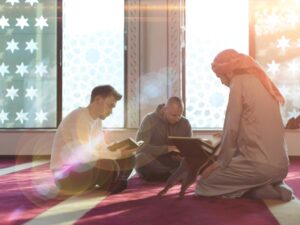As a woman, the choice to wear a hijab – a head covering traditionally worn by Muslim women – is a personal one that is often influenced by a variety of factors, including cultural and religious beliefs, personal preference, and individual interpretation of the hijab’s symbolism. For some women, wearing a hijab is a way to demonstrate their faith and devotion to Islam, while for others it is a way to reclaim control over their bodies and resist objectification in a society that often places a great emphasis on physical appearance.
Despite the varied reasons for wearing a hijab, there are a few common themes that often motivate women to choose to cover their heads. One of these is a desire to feel closer to God and to follow the teachings of Islam. For many Muslims, the hijab is seen as a way to display their faith and commitment to their religion, as well as to show respect for the teachings and practices of Islam.
Another reason that some women choose to wear the hijab is to reclaim control over their bodies and to resist the objectification that is often directed at women in many societies. By covering their heads, women are able to deflect attention away from their physical appearance and instead focus on their personal and intellectual attributes. This can be particularly empowering in a world where women are often judged and evaluated based on their looks rather than on their abilities and accomplishments.
Despite the many positive reasons for wearing a hijab, some women may face discrimination or negative stereotypes because of their choice to cover their heads. It is important to remember that the hijab is a personal choice and that no one should be judged or discriminated against because of their appearance or beliefs.
In conclusion, the decision to wear a hijab is a deeply personal one that is influenced by a variety of factors, including cultural and religious beliefs, personal preference, and individual interpretation of the hijab’s symbolism. Whether motivated by a desire to demonstrate faith, reclaim control over their bodies, or resist objectification, women who choose to wear the hijab should be respected and celebrated for their unique and diverse experiences.




